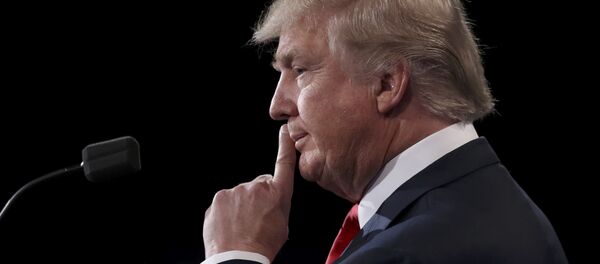According to the survey, if the presidential election were held this week, Clinton would win 326 Electoral College votes while Republican nominee Donald Trump would win only 212. To win the presidency, a candidate must secure 270 electoral votes, which is a minimum majority of the 538 available votes.
According to Reuters, polling during the third presidential debate "showed Clinton winning the third and final face-off on prime-time TV." Trump disputes those findings.
This poll is at odds with other major polls because of a different polling technique. Instead of asking a yes or no question like other polls do, Daybreak asks respondents to measure the likelihood of their voting for a candidate on a scale from 0 to 100. This technique proved itself during Barack Obama's 2012 campaign, when it predicted the current US president's win with a high degree of accuracy.
On October 19, this poll put Trump's rating at 44.9%, promising him a narrow victory when compared to Clinton's 43.3%.
The Republican nominee has made repeated claims that the election will be rigged, urging supporters to monitor polling stations.
According to Danielle Lang of the Campaign Legal Center, polls in the US in general are facing substantial challenges.
"It's really important to have educated poll workers. I think this is an understated way that citizens can participate," Lang said. "Poll workers are desperately needed. They are our gatekeepers."





